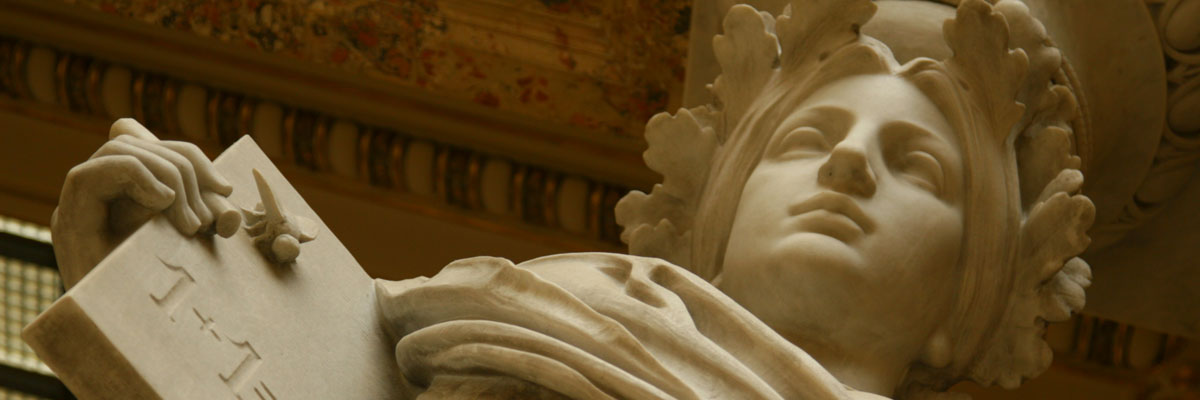
News archive
Search
Selected range: all newsAccording to the theory of anti-tumor immune surveillance, the immune system can neutralise most tumor cells before the disease ever develops. Despite this, nearly 90,000 cancer patients are diagnosed in the Czech Republic every year. The research of the Laboratory of Tumor Immunology at the Institute of Microbiology of the CAS is contributing to the search for new treatment options making use of the immune system itself. We covered the topic in the CAS magazine A / Věda a výzkum. This story is being featured on the occasion of World Cancer Day, which falls on Saturday, 4 February this year.
The Institute of Organic Chemistry and Biochemistry of the CAS (IOCB) and Gilead Sciences announced today that the Gilead Sciences Research Centre (GSRC) at IOCB has been extended to address areas of high unmet medical need. Gilead Sciences will provide funding and collaborate on several projects at IOCB across virology, inflammation, and oncology.
Trilobite larvae played a vital role as a source of food for certain marine animals. Researchers discovered that the larvae served as an intermediary in the food chain for larger sea organisms that were unable to feed on plankton due to its size. The lead author of the study, published in the journal Palaeogeography, Palaeoclimatology, Palaeoecology, is paleontologist Lukáš Laibl from the Institute of Geology of the CAS. Farid Saleh and Francesc Pérez-Peris from the University of Lausanne also collaborated on the research.
Research results can unintentionally, often inadvertently, serve a purpose different to the one that gave rise to it. Below, David Honys from the Academy Council of the CAS explains what the influence operations of foreign powers in science can look like and why it’s prudent not to underestimate them.
It’s called Blastocrithidia nonstop and it’s a parasite – unknown until now to the scientific community and very unique at the same time. Why is its discovery so extraordinary? Experts have discovered that this newly described protozoan exhibits a completely unpredictable and distinct deviation from the genetic code that is otherwise identical in the vast majority of organisms, including humans. The genetic mystery was cracked by Czech molecular biologists, primarily from the Institute of Microbiology of the CAS and the Institute of Parasitology of the Biology Centre of the CAS. The project was supported by the Czech Science Foundation and the study was published in the prestigious scientific journal Nature.
While the modernisation of the countryside has given us clean farm buildings equipped with the latest technology that increases the competitiveness of livestock production, it also has its negative aspects. It has resulted in there being dramatically less space for nesting birds such as the swallow, the martin, and the little owl. Researchers from the Institute of Vertebrate Biology of the CAS have issued a warning and are proposing measures to help the birds. The results of their study were published in the Journal of Applied Ecology in 2022.
He has helped Czech researchers develop innovative methodological approaches as well as ecosystem experiments. For this and many other contributions to science, Austrian bioclimatologist and IPCC member Professor Christian Körner has received the Gregor Johann Mendel Honorary Medal for Merit in the Biological Sciences. On behalf of the Czech Academy of Sciences, the medal was awarded by CAS Vice President Zdeněk Havlas and Michal Marek, the director of the Global Change Research Institute of the CAS.
Greenhouse gases are an unwanted byproduct of industrial activity, resulting in global warming. But what if they could be effectively captured and actually utilised? Research by an enthusiastic young scientist, Eva Krupičková Pluhařová from the J. Heyrovský Institute of Physical Chemistry of the CAS, is contributing to the development of a catalyst for converting carbon dioxide into useful substances. An interview with her was published in the CAS magazine AΩ / Věda pro každého and can be read in English below.
Energy prices have been afflicting Europe throughout the year, and the unprecedented situation has also affected the Czech Academy of Sciences (CAS). In the November issue of our Academic bulletin e-magazine, directors of the CAS institutes detail how they have been coping with the energy crisis.
In the light of the energy crisis, planning the 2023 budget of the Czech Academy of Sciences proved to be a challenge. The 60th session of the Academy Assembly of the CAS tackled issues related to science and research funding when energy costs are currently on the rise. The Assembly took place at the National House Vinohrady in Prague on 13 December 2022.
The Czech Academy of Sciences (the CAS)
The mission of the CAS
The primary mission of the CAS is to conduct research in a broad spectrum of natural, technical and social sciences as well as humanities. This research aims to advance progress of scientific knowledge at the international level, considering, however, the specific needs of the Czech society and the national culture.
President of the CAS
Prof. Eva Zažímalová has started her second term of office in May 2021. She is a respected scientist, and a Professor of Plant Anatomy and Physiology.
She is also a part of GCSA of the EU.









